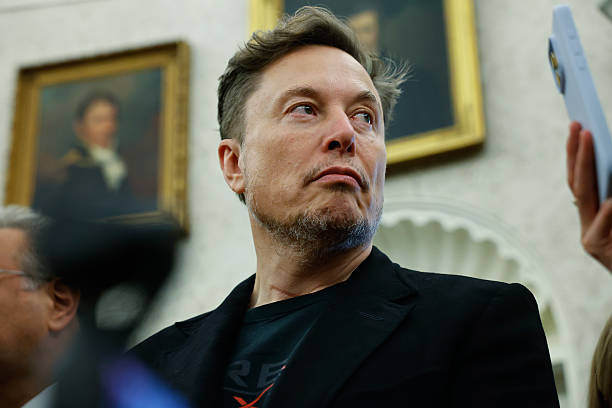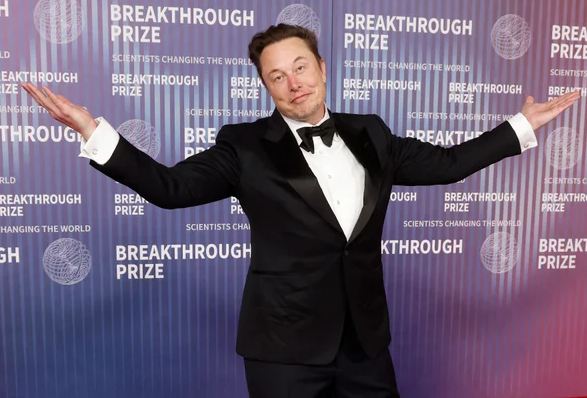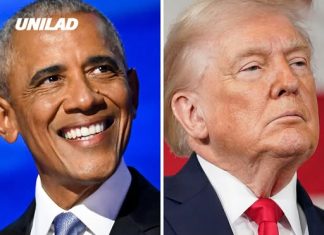On August 4, 2025, Tesla’s board approved a $29 billion restricted stock award for CEO Elon Musk, granting him 96 million share.
Why the New Award Was Necessary
Tesla said Musk hadn’t received substantial compensation since 2017 due to legal challenges. The 2018 award was voided because it was deemed excessively large and insufficiently vetted by independent board members. Musk is appealing that ruling, and the board wants to secure his leadership as Tesla moves into AI, robotics, and robotaxis. That court decision has raised concerns among shareholders and analysts about Musk’s future commitment. The board argues the new award helps retain him amid intensifying AI competition and ensures he stays focused on Tesla rather than his other ventures such as SpaceX, xAI, Neuralink, and political pursuits.

Key Terms of the Award
- Vesting: Musk must remain in a senior executive role for two years to claim the shares.
- Hold period: Once vested, shares must be held for five years, except to pay taxes or the purchase price.
- Exercise price: Musk must pay the same $23.34 per share as in the voided 2018 plan.
- No double-dipping: If the 2018 award is later reinstated, this new grant will either be forfeited or offset in whole or part.
- Musk and his brother Kimbal recused themselves from the board vote on the package
Strategic Implications and Market Reaction
Tesla described the package as essential to retaining Musk during a crucial time when it’s pivoting from its traditional electric‑vehicle business toward robotaxis, humanoid robots, and AI-driven services. Analysts welcomed the move, suggesting that it removes a key uncertainty about leadership continuity. Wedbush analyst Dan Ives reaffirmed an “Outperform” rating and kept a $500 price target, highlighting the importance of keeping Musk at Tesla through at least 2030. Tesla’s stock initially gained about 2–3% on news of the award, even as overall share prices remain down around 25–30% this year amid softening demand in key markets and concerns over Musk’s divided focus across projects and political involvement.
Criticism and Governance Concerns
Critics assert that the board set a dangerously low bar—Musk is asked to remain in position but isn’t tied to explicit performance or financial targets. This has raised alarms about corporate governance, executive compensation standards, and shareholder fairness. They argue that granting stock at a $23.34 strike price when current market value is over $300 gives Musk enormous upside with minimal risk—effectively rewarding past growth rather than incentivizing future performance.
Next Steps and Outlook
Tesla is expected to present a longer-term CEO compensation plan at its next shareholder meeting on November 6, 2025. That vote will be closely watched for whether the board conditions future awards more closely on measurable outputs and governance safeguards. For now, the interim package is meant to anchor Musk at Tesla while uncertainties over the 2018 award play out in court. If he stays engaged and the legal appeal fails, the new shares will vest as planned. But if the 2018 plan is reinstated, this award could be voided to prevent double-compensation.

Conclusion
Tesla’s decision to grant Elon Musk a new $29 billion stock award marks a pivotal moment for the company’s leadership and long-term strategy. While the package is intended to retain Musk and incentivize his continued focus on Tesla’s AI and robotics ambitions, it has reignited debates over executive compensation and corporate governance. Supporters argue that the award helps secure the visionary leadership that fueled Tesla’s rise, while critics warn that the plan lacks performance-based safeguards and sets a concerning precedent. As Tesla prepares for its next shareholder meeting in November 2025, all eyes will be on how the board addresses these concerns and whether future compensation plans will better align with measurable outcomes and shareholder expectations.

















